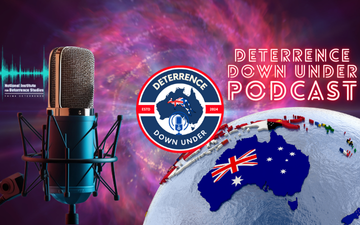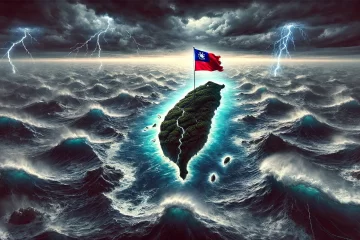The security perspective from Moscow
Under the leadership of President Vladimir V. Putin, Russia annexed Crimea from Ukraine, subsequently invading eastern Ukraine to foment a nationalist civil war, and directly engaged in the conflict and the subsequent secession of South Ossetia and Abkhazia from the sovereign Republic of Georgia.
These forays are not mere lashing out—the Kremlin is attempting to re-establish a traditional sphere of influence in its “near abroad.” Henry Kissinger emphasizes the fact that “the relationship between Ukraine and Russia will always have a special character in the Russian mind. It can never be limited to a relationship between two traditional, sovereign states, not from the Russian point of view, maybe not even from the Ukraine’s.”
The “Near Abroad” is a Security Buffer
The Kremlin felt that, in insisting that Ukraine was free to align itself with the European Union or even NATO, U.S. and European leaders were ignoring Russia’s views of its vital interests. Russia’s annexation of Crimea and ongoing involvement in the Ukrainian civil war, for instance, can be interpreted as Russia demonstrating it’s readiness to protect these vital interests.
To understand this view, one must look to Russia’s security history. Russia is perpetually “neuralgic” about external threats emerging on its western front having fought off invasions led by Napoleon and Hitler. After the collapse of the USSR, NATOs expansion into former Soviet states, closer to Russia, was seen by Russian leadership as a critical threat to Russia’s sovereignty.
In this light, Ukraine is seen as an essential buffer, as Soviet satellite states in the Warsaw Pact were during the Cold War. In this vicious cycle, the U.S., in turn, sees Russia as a threat, subjecting Russia to economic and political isolation, while visibly reinforcing defense commitments to NATO allies and partners in the former Soviet space.
The Geo-Strategic Element
While the U.S.-Russian relations are far from where they were during the Cold War, bilateral ties between the two are the most strained they’ve been since the collapse of the Soviet Union.
The Kremlin, increasingly isolated by the international community, has become rife with suspicion and conspiracy. Senior officials perceived the campaign rhetoric of Secretary Clinton as hostile towards Russia; many top political leaders and those in the security establishment believed that some form of war—be it conventional or nuclear—was likely.
Understanding Russia’s geopolitical position is critical to comprehending their defense perspective. To do so, we look at Russian military planning and security strategy, which lies in contrast to that of the United States.
The U.S. enjoys a much greater degree of security due to its geographic position between the Atlantic and Pacific oceans. Geography has strongly influenced U.S. defense planning towards the development and maintenance of a large, blue water navy, capable of global force-projection.
On the other hand, Russia’s armed forces are largely structured for land-based combat. Russia is a land power with a large army, a strong air force to support it, and a brown water navy to support coastal security and regional force projection. Russia’s military planners see a threat in NATO expansion and are structuring the Russian armed forces for a conventional conflict involving state actors that could, theoretically, arise along Russia’s Eastern Europe, Caucasian, and Eurasian border regions. This is not to say that Russia is planning any such conflict, rather, Russian military analysts have concluded that a conventional war is possible, and it would most likely occur along Russia’s western flank.
When one positions oneself from Moscow’s viewpoint, it becomes clear that Western leaders are responding to what they understand as expansionist, Russian aggression in Eastern Europe. However, it must be understood that, at the same time, Russia sees itself as responding to an expansionist NATO and considers its actions a means of ensuring Russian national security.



